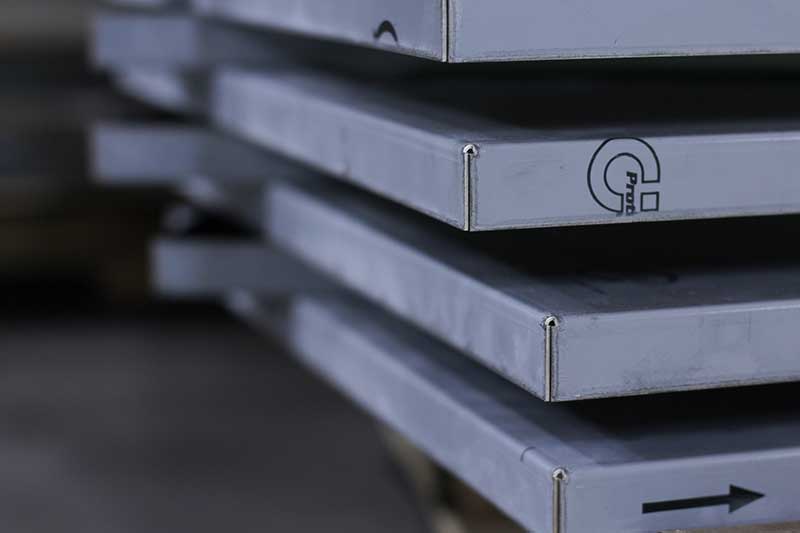
When it comes to durability and strength, steel is one of the most versatile and widely used materials in construction, manufacturing, and engineering. Among the many types of steel, boiler plate steel is known for its toughness and resistance to high pressures and temperatures, making it essential in industries like power generation, construction, and shipbuilding. However, boiler plate steel is just one example of the many different steel grades, each designed for specific applications requiring unique properties. In this article, we’ll explore the strongest types of steel, their characteristics, and where they are most commonly used.
1. Boiler Plate Steel
Boiler plate steel, also known as pressure vessel steel, is a highly durable material used in the construction of boilers, pressure vessels, and heat exchangers. What makes it particularly strong is its ability to withstand high-pressure environments and extreme temperatures, which is crucial for industries like energy production. Boiler plate steel is typically used in environments where the steel is exposed to high heat, such as steam boilers, nuclear reactors, and large industrial tanks. Its resistance to corrosion and wear makes it an essential component for safety-critical applications.
2. High Carbon Steel
High-carbon steel is one of the toughest and strongest types of steel due to its high carbon content, typically ranging from 0.6% to 1.0%. This type of steel is particularly strong in compression and has excellent wear resistance, making it ideal for tools, knives, and industrial machinery components. The high carbon content gives it the ability to harden significantly when heat treated, which contributes to its strength. However, high carbon steel can also be more brittle than lower-carbon steels, making it less flexible in some applications.
3. Alloy Steel
Alloy steels are a blend of carbon steel and other elements, such as manganese, nickel, chromium, or molybdenum, to enhance specific properties. These steels are often used in high-performance applications where additional strength, toughness, or resistance to corrosion is required. For example, chromium alloy steels are highly resistant to corrosion and wear, making them ideal for use in harsh environments, such as marine or aerospace applications. Molybdenum-alloyed steels are used in heavy-duty machinery and automotive components due to their superior strength and resistance to high temperatures.
4. Stainless Steel
Stainless steel is one of the most common types of steel used globally, known for its corrosion resistance and strength. While not always the strongest steel in terms of tensile strength, it excels in applications where resistance to corrosion and staining is essential. Stainless steel is typically alloyed with chromium (at least 10%) and sometimes nickel, making it resistant to rust, staining, and corrosion in harsh environments. It’s used in industries ranging from food processing to medical instruments and chemical plants, where hygiene and durability are a priority.
5. Tool Steel
Tool steels are designed for manufacturing and cutting tools, where high strength, wear resistance, and toughness are required. These steels typically contain high levels of carbon and are alloyed with elements like tungsten, vanadium, and molybdenum to improve hardness, heat resistance, and ability to maintain sharp edges under stress. Tool steels are essential in industries such as metalworking, automotive, and manufacturing, where precision and longevity are critical.
6. Maraging Steel
Maraging steel is an ultra-high-strength steel that is known for its exceptional toughness and ability to withstand extreme forces. Unlike many other types of steel, maraging steel undergoes a special heat treatment process that allows it to maintain its strength while remaining ductile and tough. Maraging steels are used in aerospace applications, including aircraft landing gear, rocket casings, and high-performance sports equipment, due to their unique combination of strength, hardness, and toughness.
7. Ultra-High-Strength Steel (UHSS)
Ultra-high-strength steel (UHSS) is designed for use in applications where maximum strength is required. It is commonly used in the automotive industry for producing lightweight but durable parts that must withstand high stress. UHSS is used to create components such as body panels, chassis parts, and safety features, where it’s essential to combine strength with reduced weight. With tensile strengths exceeding 1000 MPa, UHSS plays a crucial role in improving the safety, efficiency, and performance of modern vehicles.
Conclusion
The strongest types of steel each have unique properties that make them suitable for specific applications, from the corrosion-resistant qualities of stainless steel to the extreme heat and pressure tolerance of boiler plate steel. Whether you’re working in aerospace, construction, or manufacturing, understanding the properties of different steels ensures you choose the right material for your needs. For reliable steel sourcing, we recommend P&D Northern Steels as one of the UKs most trusted steel stockholders.

